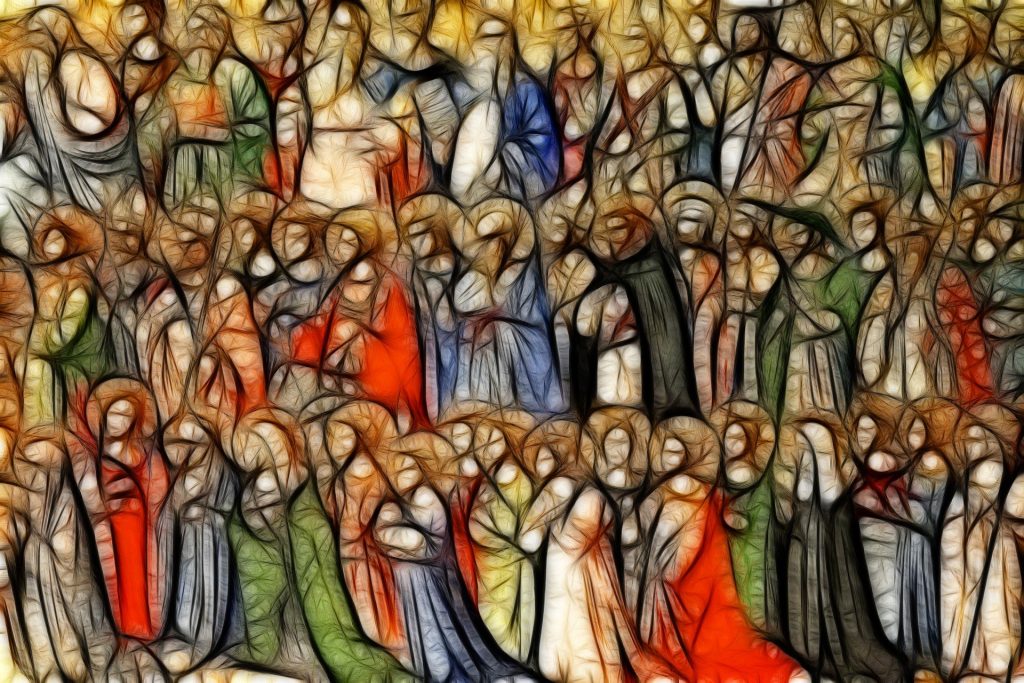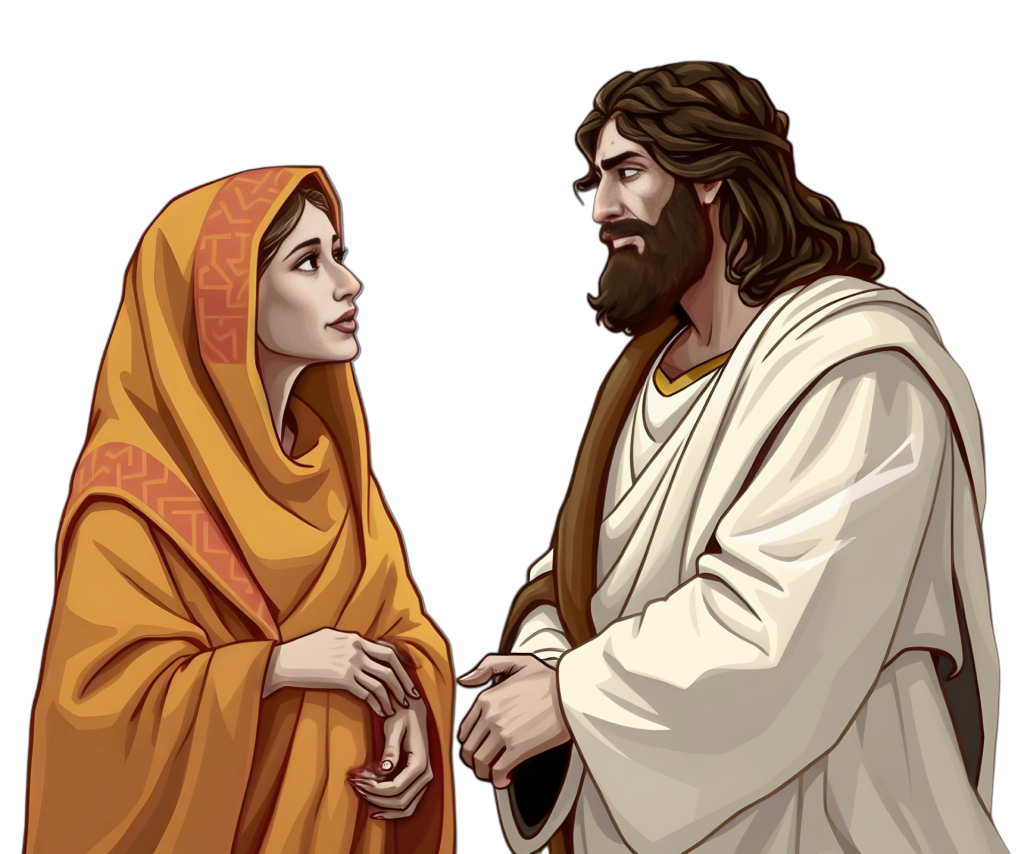
By Deacon Richard Hay
“Holy Men and Women of God, pray for us…”
“I believe in the Holy Spirit, the holy Catholic Church, the communion of saints, the forgiveness of sins, the resurrection of the body, and life everlasting.”
Those words are from the final part of the Apostle’s Creed – a profession of faith in the early church. From this statement of faith, the Nicene Creed was developed to more fully state our believes as Catholics. This is the creed we profess together at the Sunday liturgy and on Solemnity’s like All Saints today.
I mention these words of the Apostles Creed because it states our belief in the “communion of saints” since the earliest days of the church. This theological concept refers to the spiritual unity of all members of our faith, those who have gone before us in death, those in purgatory, and those of us who are still living in this life, because we are all united together in Christ.
The perception of many outside of the Catholic church is that we “worship” the saints. However, that is not the case. Instead, we “venerate” the saints because, as the church teaches, the saints are alive in heaven – face to face with God – and can “intercede” for us with God concerning our prayer petitions.
Yes, we can of course pray directly to God as the first person of the Holy Trinity, we can pray directly to his Son, Jesus, as the second person of the Trinity, and yes – we can even invoke the Holy Spirit as the third person of the Holy Trinity. All three the same God – without asking any saint for their intercession.
So – why do we pray for the intercession of the saints?
- First – they can offer prayers for our intercessions that strengthen our prayers to God because they are in fact, in his presence.
- Second – Since we believe in the “communion of saints” and that all of us in the church, both living and dead, are connected spiritually, the saints can therefore participate in our lives from that spiritual perspective.
- Third – Asking the saints to intercede for us does not take away from or replace Christ’s role as our Savior. Instead, it reflects and extends his role in our lives of faith.
- Fourth – Praying for a saint’s intercession reminds us that it is possible to persevere in our faith because of their example which gives us strength and hope in our own lives, because like us, they were also flawed humans who lived in this world.
- Fifth – The saints are part of the living tradition of the church and connect us to that tradition. They are a great cloud of witnesses, present at every mass, to assist us in feeling as a part of this spiritual family of faith.
- Sixth – Praying for the intercession of the saints reminds us that we are not on this journey alone. We are part of a faith community in this life. We support one another in prayer because we are a community of believers.
I am sure the vast majority of us have prayed to a saint for intercession at some point in our lives. Many of us become associated with a particular saint because of a moment in life that we turn to them in prayer. We usually continue that relationship with them – for me Saint Carlo Acutis and Saint Maria Gorretti both do a lot of heavy lifting for me in that sense.
There is no requirement to turn to the saints in prayer for intercession, but if someone was willing to pray for you – on your behalf – would you turn them down and tell them not to pray for you?
Of course not.
Well, the saints are there waiting for us to call upon them to pray for us in any circumstance of our lives.
So, how do you start to receive the blessings that come from the communion of saints and their intercession to God for us?
- Begin to read and learn about the saints. At some point, as you do this, you will find you have a connection with one of them and can then choose them, or multiple saints, as your patron.
- Celebrate the feasts of all the saints throughout the church year – our church calendar is filled to the brim with saints. Franciscan Media has a wonderful website and newsletter, that you can subscribe to as you begin this journey that highlights a saint each day of the year.
- We are all hopefully praying daily, as part of those prayers, ask the saints to intercede on your behalf in all your needs. This means challenges at work, in life, with your family, in health or with sin – ask the saints to carry those prayers to God. There are even saints that are patrons for particular things and circumstances, such as Saint Peregrine who is a patron for those with cancer and other life-threatening illnesses.
- The saints lived holy lives – heroic lives – when the church proclaims them as a saint, they are saying that these fellow human beings did indeed live these virtuous lives – we should all imitate them in our own.
- We also do not just need to turn to the saints for intercession on the problems in life, but we can also share our prayers of thanksgiving to God through their intercession. Always remember to offer those prayers of thanksgiving.
Another aspect of the lives of the saints which we “venerate” are their relics. We venerate these relics because they are reminders of the holy life this person lived on earth. There are three classes of relics:
- A first-class relic is something of their body – blood, hair, bone, tissue.
- A second-class relic is something the saint owned or used – clothes, books, or other personal belongings. Somewhere in the world is a computer that Saint Carlo Acutis used to build the Eucharistic Miracle website that is a second-class relic.
- A third-class relic is an item, usually religious in nature, that has been touched to a first or second-class relic.
I mention this because I want to point out that we have a first-class relic here in our church that you can venerate. It was a gracious donation from a parish family and is usually hanging on the wall at the back of the church above the papal blessing we received from Pope Francis for our 150th anniversary last year.
Today we have that relic up here in the sanctuary since it is All Saints.
Not to be confused with Saint John Henry Newman, who Pope Leo has declared a Doctor of the Church today in Rome, Saint John N. Neumann who we venerate through this relic, was a Bohemian immigrant who came to the United States in 1836, he was ordained a priest of the Redemptorist order and became the fourth bishop of Philadelphia in 1852. He was the first male American citizen to be declared a saint in the Catholic church and was known for his care of the sick and creating Catholic schools during his eight years as bishop of Philadelphia. He died at the age of 48 in 1860 and was canonized a Saint by Pope Saint Paul VI in June of 1977.
I know we have a few folks here at Sacred Heart with a Philly connection – feel free to adopt Saint John N. Neumann, a priest and bishop of Philadelphia, as your patron saint if you are still looking for one. It is unique to have his relic in our church, and it can provide a regular connection with him as you enter and leave each time.
So, as we continue with this liturgy, let us ask Saint John N. Neumann and all the Holy Men and Women of God – “pray for us…”









